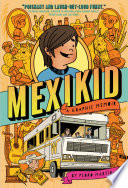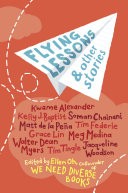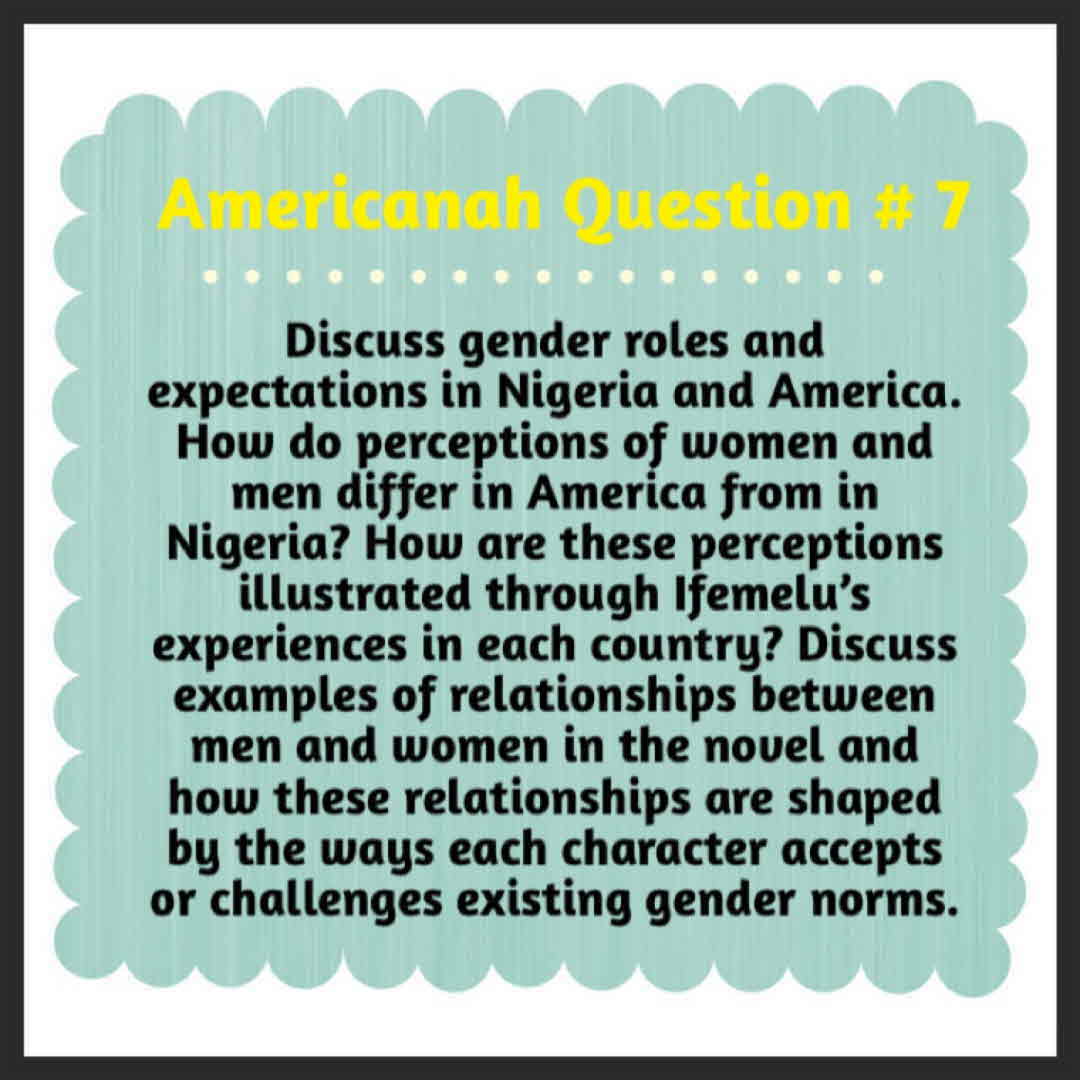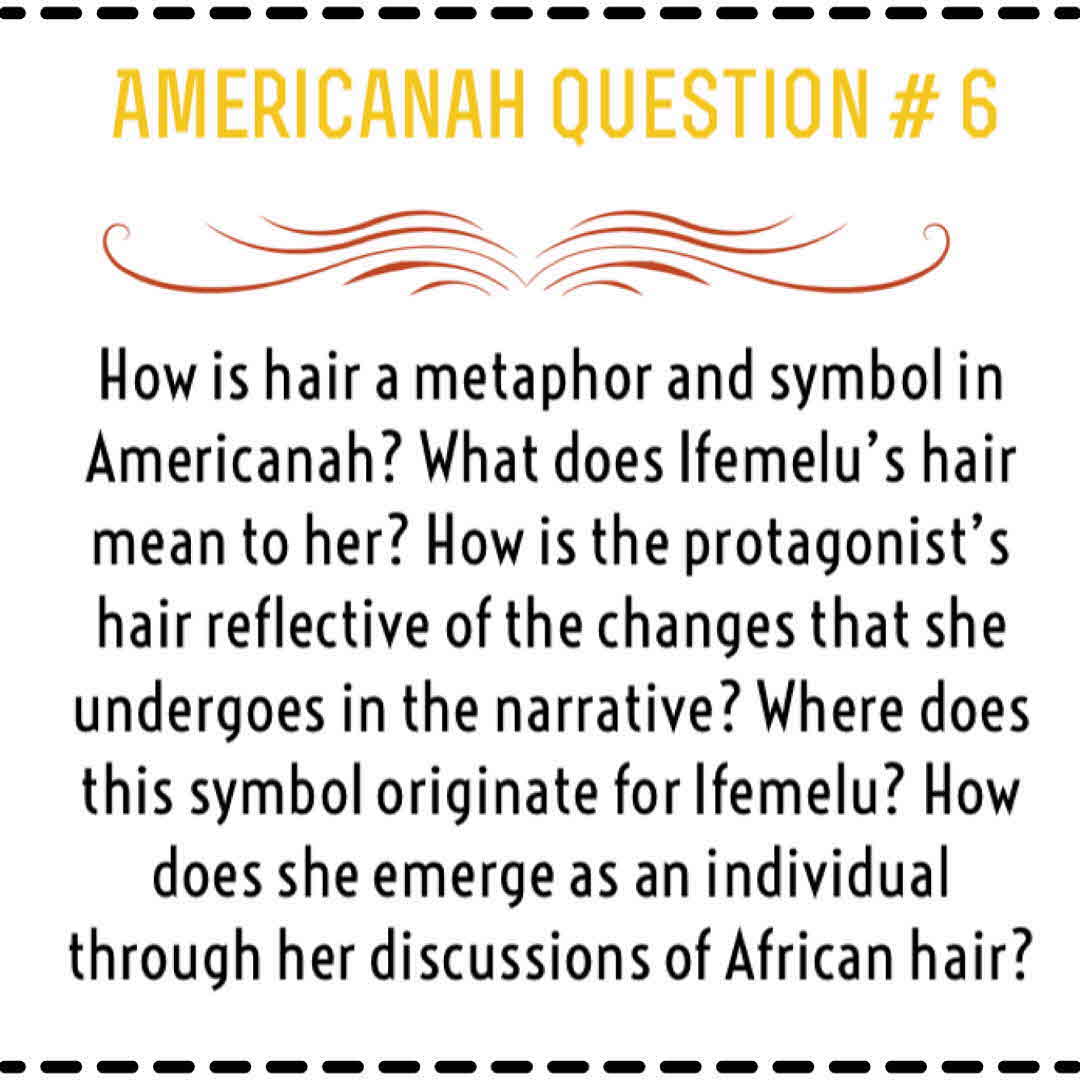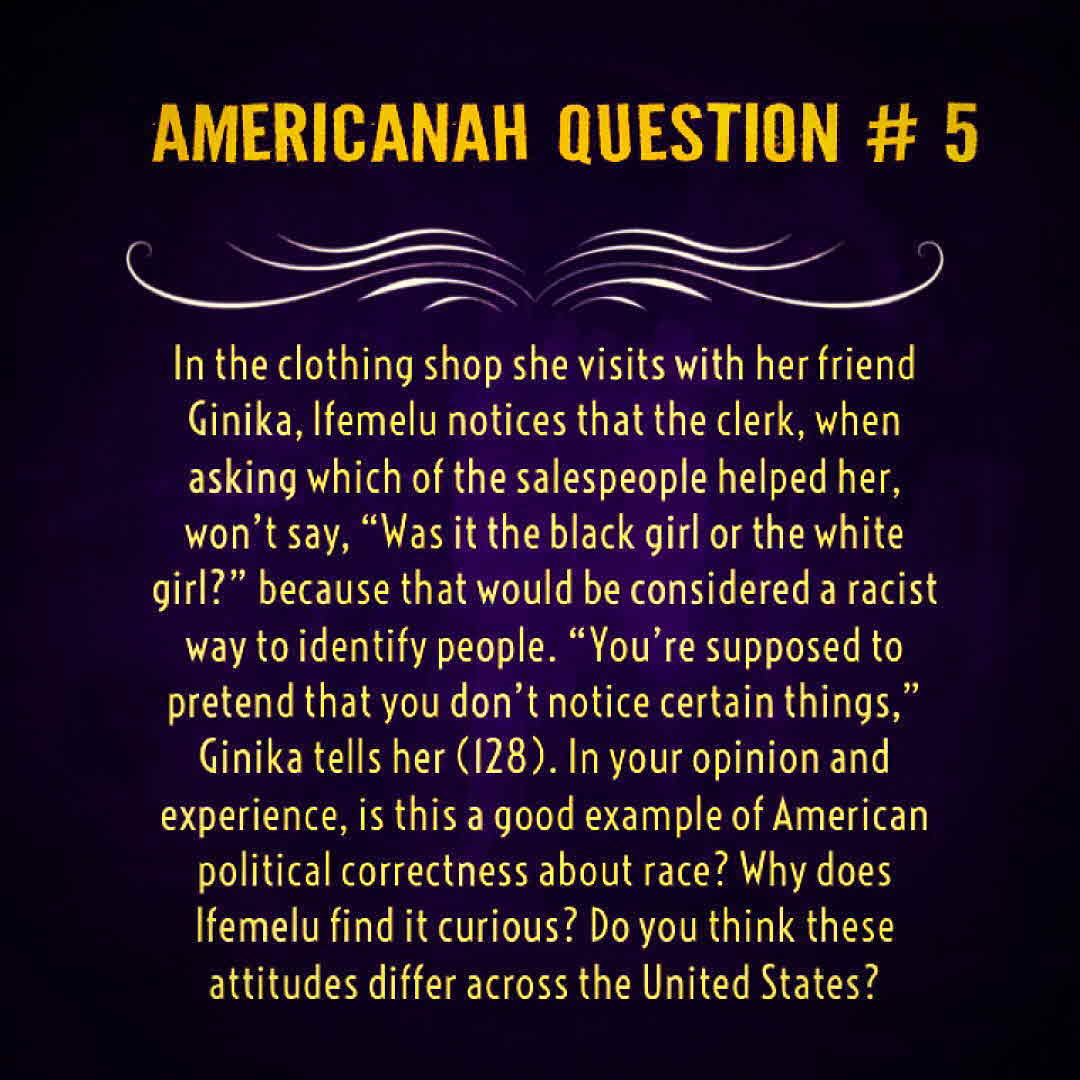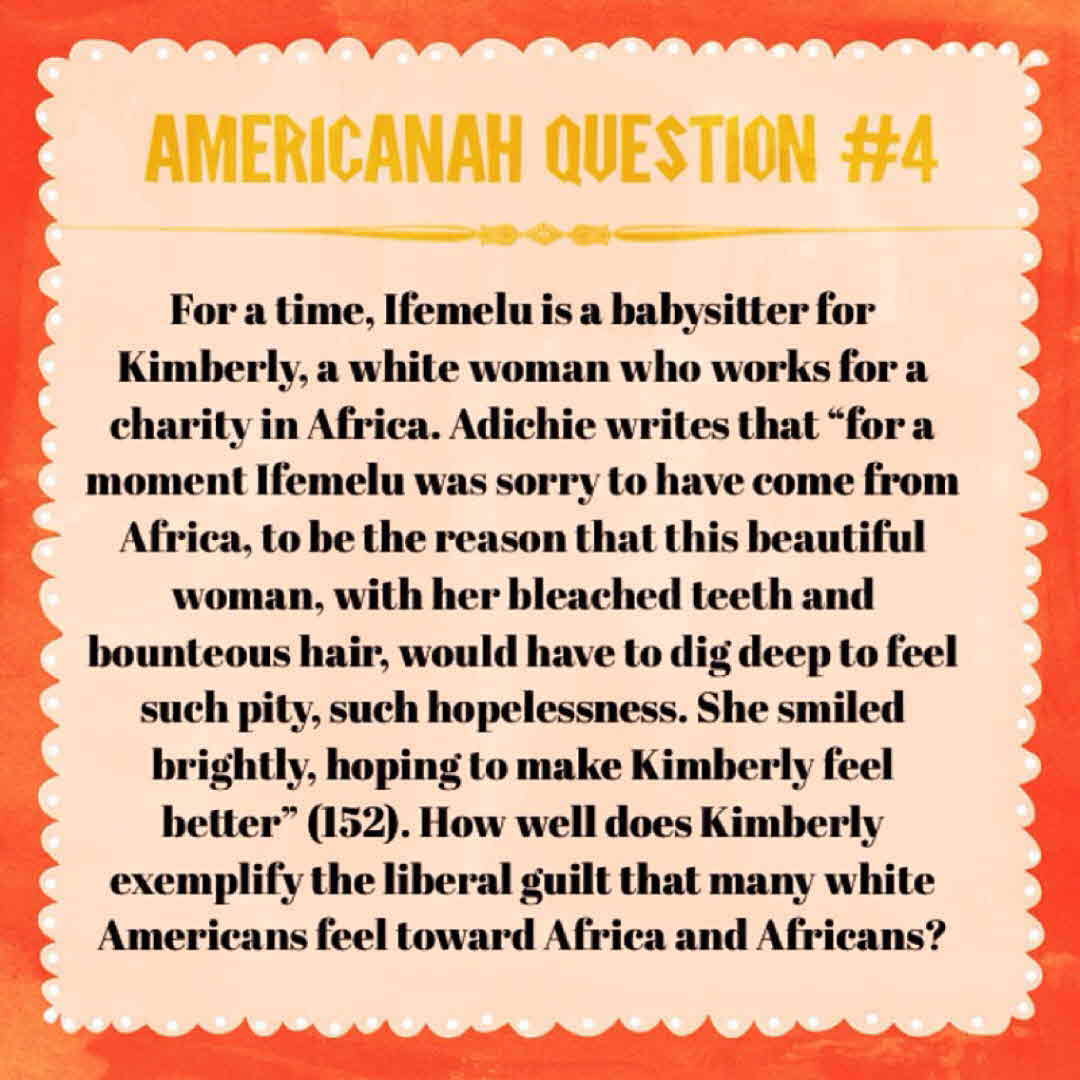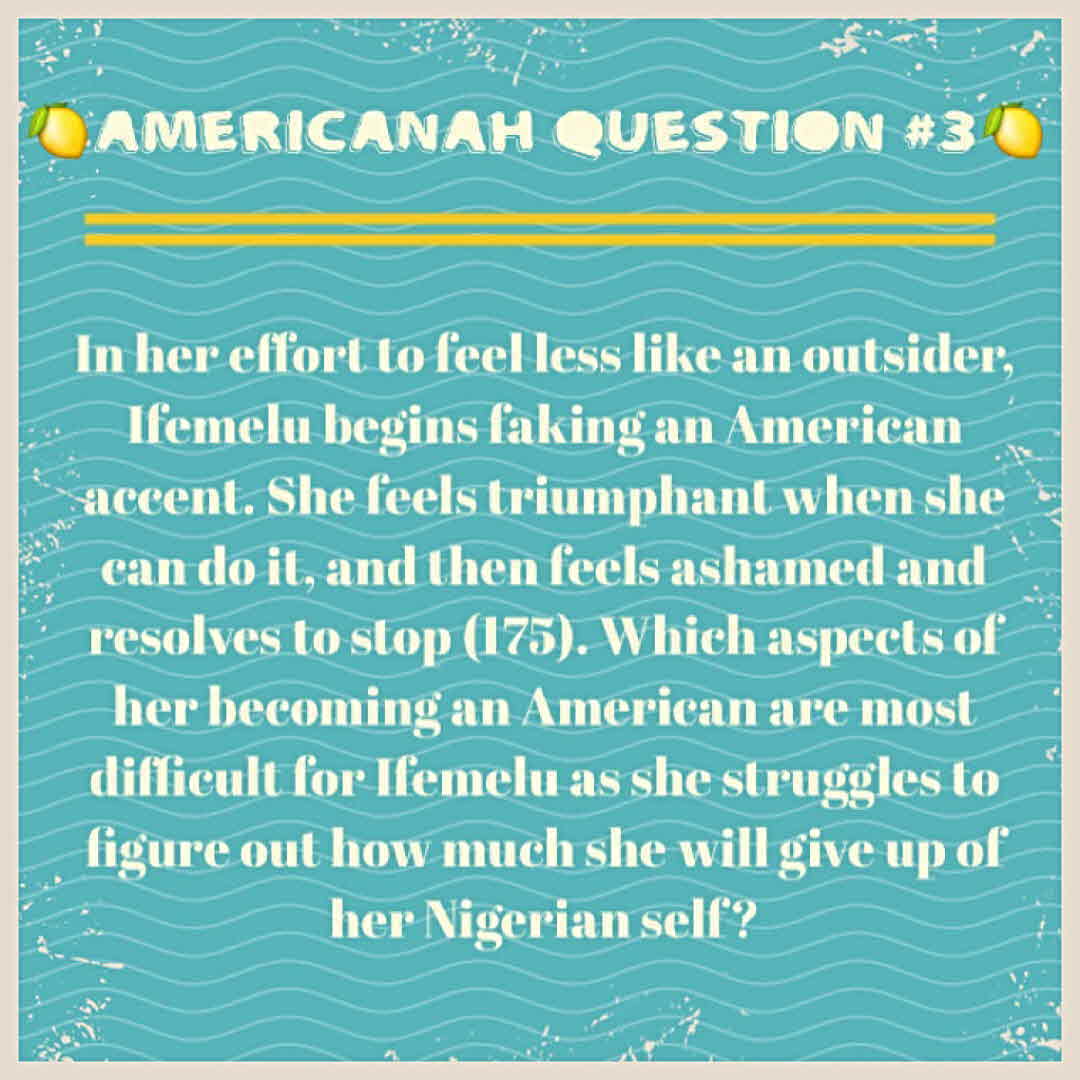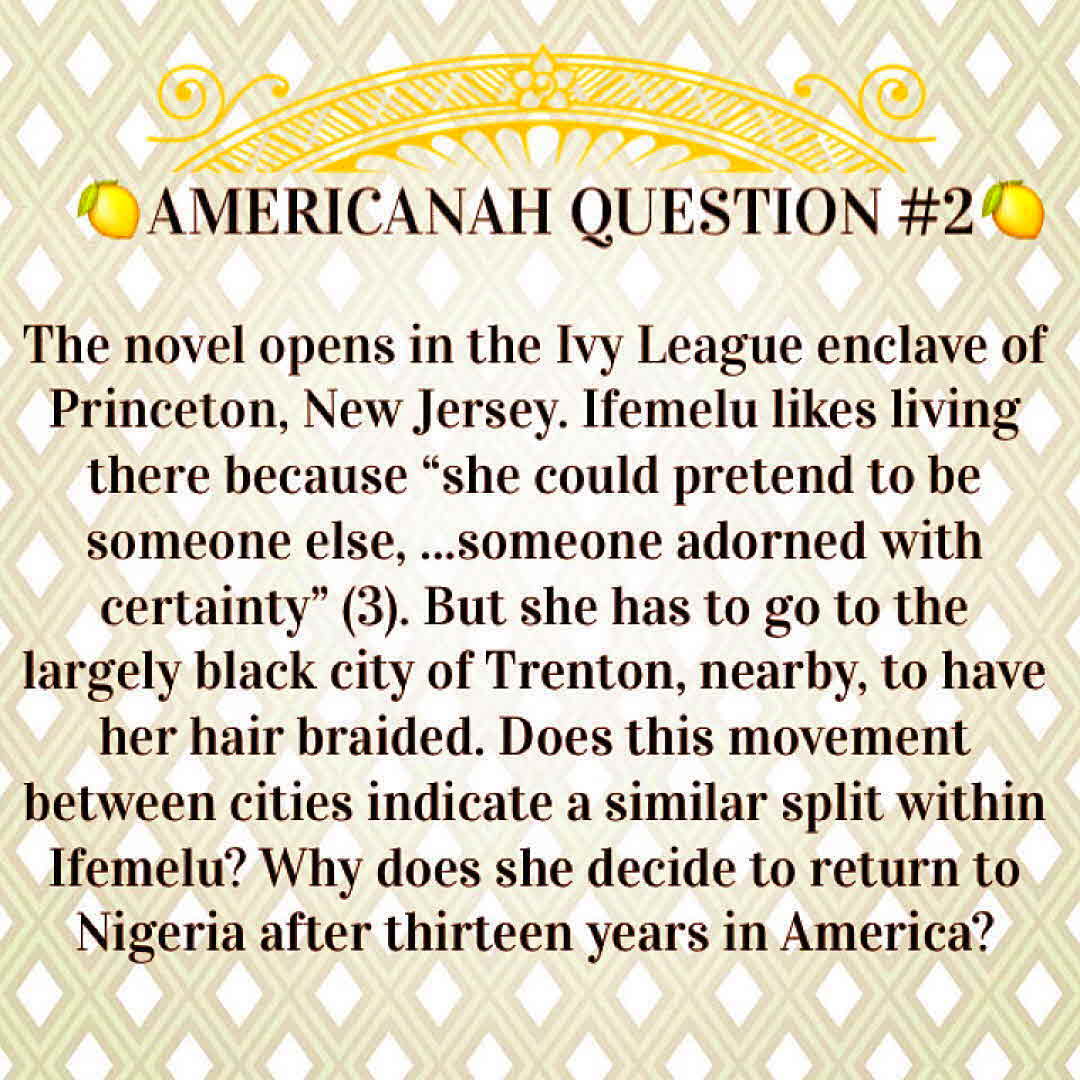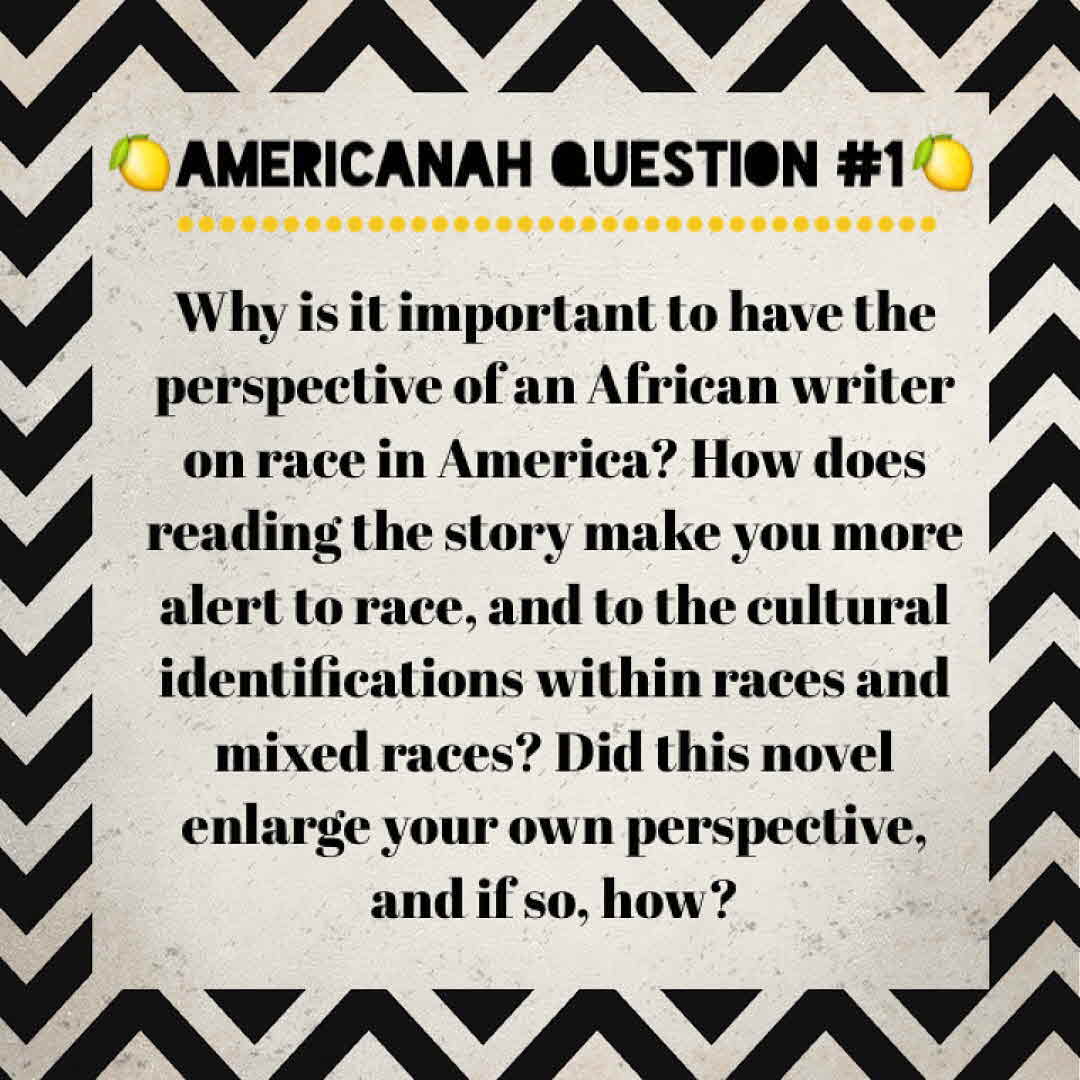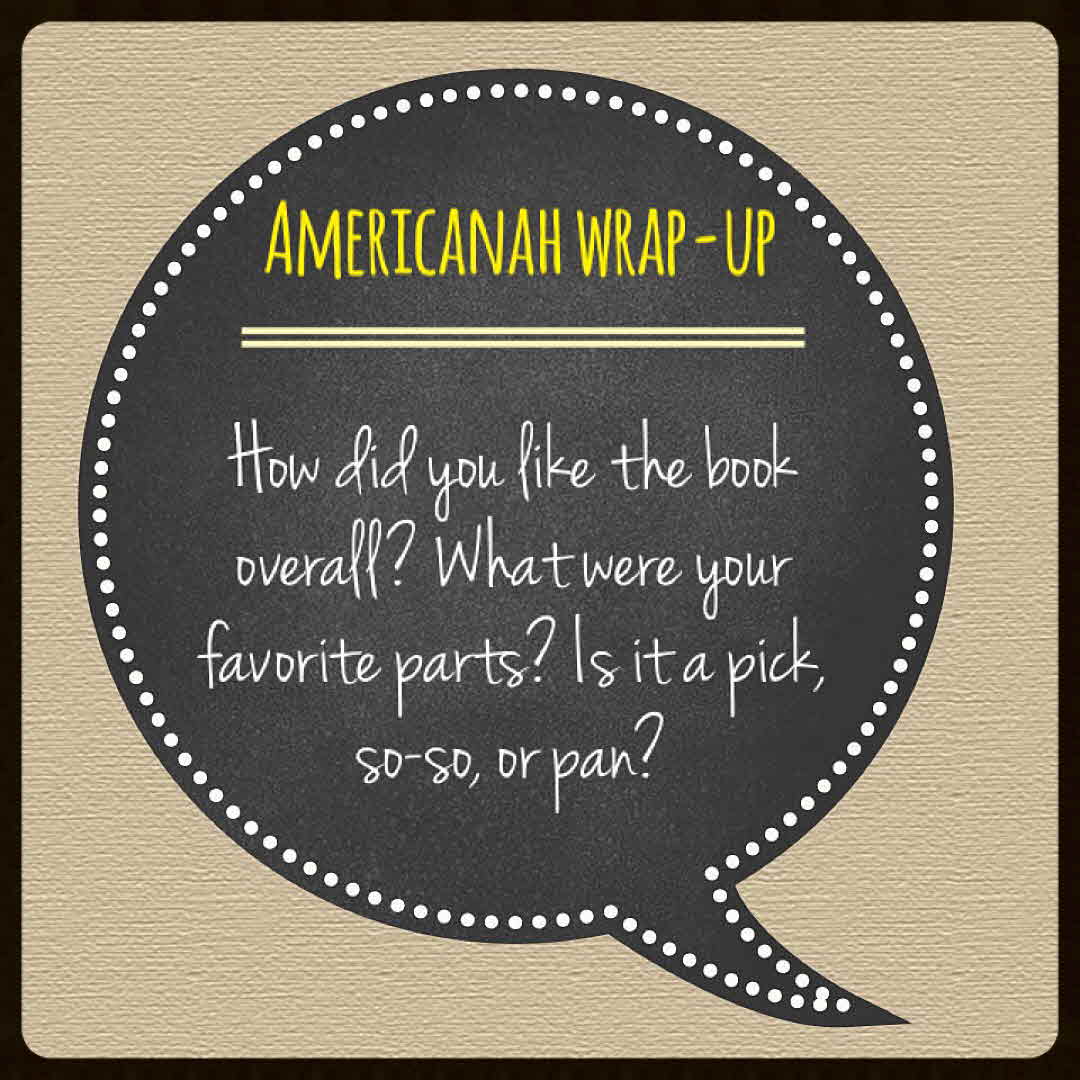
Thank you all so much for a wonderful discussion on Americanah this month!!
How'd you like the book overall? How would you rate it?
🍋If you didn't get a chance to participate in this month's discussion you can find the questions under the hashtag #AmericanahDiscussion & go back to add your thoughts.
🍋You can find articles & content related to the book under #AmericanahContent.
🍋Feel free to also leave feedback below!






